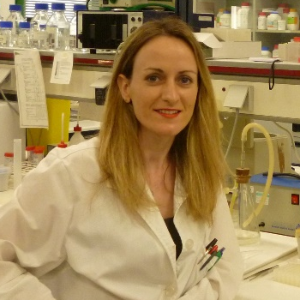Rajvir Dahiya, University of California San Francisco, United States
Will be Updated Soon...

Will be Updated Soon...

Vibrational optical coherence tomography (VOCT) is a new technique to optically image and measure the resonant frequency of cells, blood vessels, papillary collagen, and fibrotic tissue in the skin and other soft tissues. The technique uses low levels of infrared light (0.1mW) fo [....] » Read More

Blasts in acute myeloid leukemia (AML) can show differentiation toward various lineages, including monocytic, erythroid, megakaryocytic, and plasmacytoid dendritic cell lineage. The incidence and clinicopathological features of mast cell (MC) differentiation in AML is large [....] » Read More

Introduction: Photodynamic therapy (PDT) had been used for benign and malignant skin lesions for some time. It can disinfect caries dentin before restoration or oral tissues before or during surgical procedures, treat denture stomatitis, and oral candidiasis in immunocompromised [....] » Read More

A case of about-80-year-old-female is herein presented. She felt palpable mass in her right breast of about 10mm-in-diameter before 1 year for our exams. In this time, she felt the mass is larger and larger. Hence, she came to our hospital for further examinations and treatments. [....] » Read More

Chromatin bridges are strings of mis-segregated chromatin connecting the anaphase poles or daughter nuclei in mitotic cell division and can arise from incomplete DNA replication or decatenation, or from dicentric chromosomes generated by end-to-end chromosome fusions. Chromatin b [....] » Read More

Background: Little is known of the synergy of combination intratumoral immunotherapy and cancer ablation. We undertook a Phase II Trial (Abscopal 5001; NCT04713371) for patients with metastatic solid cancer to assess the safety and efficacy of cryoablation with concurrent injecti [....] » Read More

Triple-negative breast cancer (TNBC) is a subtype of breast cancer that is prone to metastasis and therapy resistance. Due to its aggressive nature and limited availability of targeted therapies, TNBC isassociated with higher mortality compared to other forms of breast cancer. To [....] » Read More

Background: Breast cancer remains a leading cause of cancer-related death in women worldwide. Since 2019, female breast cancer has surpassed lung cancer as the most commonly diagnosed cancer, with an estimated 2.3 million new cases (11.7%), followed by lung cancer (11.4%). The pr [....] » Read More

Malignant tumors of the sinonasal tract account for approximately 3% of all head and neck malignancies. These tumors typically carry a poor prognosis. Diagnosis can be particularly challenging due to the small size of biopsy samples, crush artifact, and overlapping histologic and [....] » Read More

Introdcution: In-transit metastases (ITM) in melanoma is a type of locoregional metastasis found between the primary tumour site and the regional draining lymph node. Treating ITM can be a challenge; some recur after surgery alone and others are unresectable at presentation. Immu [....] » Read More

Chromatin bridges are strands of incompletely segregated DNA connecting the anaphase poles or daughter nuclei. Chromatin bridges can arise from incompletely replicated DNA, defective resolution of DNA catenates or dicentric chromosomes which are formed by chromosome fusions. If u [....] » Read More

Breast cancer is the most common malignancy in women worldwide and remains a leading cause of câncer related mortality. While the immune system plays key role in controlling tumor progression, it is often suppressed in breast cancer. Dendritic cells (DCs), which connect inn [....] » Read More

Introduction/Purpose: The mortality rate of cancer patients has been decreasing; however, patients often suffer from cardiac disorders due to chemotherapy or other cancer therapies (e.g., cancer therapy-related cardiovascular toxicity, CVR-CVT). Therefore, the field of cardio-onc [....] » Read More

Background: The prognostic value of neoadjuvant therapy (NAT) in patients with gastric linitis plastica (GLP) remained controversial. This study aimed to analyze the effect of NAT therapy on short- and long-term patients with GLP. Methods: This multi-center study enrolled pati [....] » Read More

YWHAZ is elevated in many types of cancer including human breast cancer tissues, which closely correlated with clinicopathological features. YWHAZ promotes malignant progression in most of tumors. However, its involvement and molecular basis in ferroptosis are not clear. In this [....] » Read More

To stop cancer development the prime target would be intercept of electro-gravitational impulses(0.0107 or 0.0106 unit) entering into the cell system. A difference of 0.0001(1) is natural in directional biology. I shall determine the interplay of lunar time(183 or 0.3477 or 777), [....] » Read More

Aim: This study delves into cutting-edge cancer treatments by leveraging advancements in quantum biology, genomics, and artificial intelligence. Additionally, it investigates the integration of AI- generated auto-contours, using deep learning segmentation, into diverse treatment [....] » Read More

Breast cancer remains one of the most prevalent and life-threatening diseases, with early detection playing a crucial role in improving patient outcomes. Deep learning techniques have emerged as powerful tools for automating cancer diagnosis, yet challenges persist in optimizing [....] » Read More

Lung cancer is among the most fatal cancers, necessitating advanced diagnostic tools for early detection. This study investigates the performance of a novel deep learning approach combining EfficientNet with an attention-based Transformer model to classify lung cancer images from [....] » Read More

Introduction: Oral cancer ranks as the sixth most commonly diagnosed cancer type originating from oral tissues. The incidence of oral cancer varies globally, with higher prevalence in developing countries. Traditional risk factors such as tobacco, alcohol, and Human Papilloma Vir [....] » Read More

Chronic idiopathic thrombocytopenic purpura (ITP) is an autoimmune disorder characterized by lowplatelet counts due to increased destruction and impaired production. A 24-year-old male fromKashmir presented with bleeding gums, nosebleeds, petechiae, and oral ulcers. Initial evalu [....] » Read More

Colon cancer remains one of the most elusive cancers to detect, as it often shows no symptoms in its early stages. Additionally, its gold-standard diagnostics carry substantial risks, while existing cancer detection studies are narrowly focused on the microscopic scale, leaving a [....] » Read More

The sensible improvement of anticancerous specialists that explicitly target threatening malignant cells without impacting the normal cells or tissues, has provoked the use of microbe assisted bioactive substances. Such fundamental discovery could get ready to beat the shortcomin [....] » Read More
Title : Serum based machine learning models to assess the risk of liver cancer
Jianhua Luo, University of Pittsburgh School of Medicine, United States
Hepatocellular carcinoma (HCC) is one of the most lethal malignancies for human. Early diagnosis of HCC is crucial in reducing the mortality of the disease. In this study, a panel of 9 fusion transcripts in the serum samples from 136 individuals using TaqMan qRT-PCR was analyzed. [....] » Read More
Title : Gene activation and delivery
Nagy Habib, Imperial College London, United Kingdom
For over three decades Nagy has been at the forefront of clinical research and clinical practice in cancer. He pioneered the first clinical trial in the use of adenovirus and plasmid for the treatment of liver cancer, as well as the use of plasmid gene therapy in hydrodynamic gen [....] » Read More
Title : Targeting the post-translationally generated epitopes to fight cancer
Michele Mishto, The Francis Crick Institute, United Kingdom
MHC class I complexes can present antigenic peptides that have a sequence produced by post-translational mechanisms such as peptide splicing. Some examples of tumour-associated spliced epitopes have been investigated for their immunogenicity in the context of cancer so far. We de [....] » Read More
Title : Transforming immune therapy: A reverse pathway in B-lymphocytes for super-antibody technology to cure infectious diseases and cancer
Victor Alexander, The President and PD/PI of Capital Stem Cell Research Corporation, United States
Until today, the contemporary Adaptive Immunology is using Clonal Selection Theory (CST) as a main Theory of Adaptive Immunology for explanation of how Adaptive Immune system is working in mammals. But after 5 years (2010-2015) of his theoretical research results did show that [....] » Read More
Title : Association between occupational classifications and symptom burden in patients with advanced cancer: A multicenter cross-sectional study in China
Mo Tang, Chongqing Cancer Hospital, China
Background: Little is known about the relationship between psychosomatic symptoms and different occupations in patients with advanced cancer. Aim: To assess the prevalence of psychosomatic symptoms and the status of symptom burden management among advanced cancer survivors with d [....] » Read More
Title : Digital symptom management tool use among metropolitan-dwelling older adults with cancer in China: A qualitative exploration of experiences
Jie Ding, Zhejiang Chinese Medical University, China
Introduction: With the rapid advancement of digital health technologies, digital symptom management tools (DSMTs) have emerged as promising interventions to support self-management of cancer-related symptoms. These tools offer real-time monitoring and personalized feedback, poten [....] » Read More
Title : Homoeopathic intervention in a CA stomach: Case report with pre & post CECT report
Amir Ashraf, Dr. Amir's Family Homoeopathy Clinic, India
Introduction: Homoeopathy is an alternative system of medicine discovered by German physician Samuel Hahnemann in 1796. It has been used by several people for various health conditions globally for more than last 200 years. In India, homoeopathy is considered as a major system of [....] » Read More
Title : Enhancing caregiver support and engagement through smart room technologies in palliative oncology: A needs assessment framework for technology integration in care
Manijeh Firoozi, University of Tehran, Iran (Islamic Republic of)
Introduction: Caregivers of terminal cancer patients often face significant stress and complex challenges in delivering effective care. Frequently, they lack access to adequate assistance in caregiving tasks. Smart room technologies offer promising potential to alleviate these bu [....] » Read More
Title : Cultural and individual factors influencing the adoption of smart room technologies among primary caregivers of cancer patients in palliative care
Manijeh Firoozi, University of Tehran, Iran (Islamic Republic of)
Introduction: The integration of smart room technologies into palliative oncology care has the potential to enhance patient comfort and overall care quality. However, acceptance and utilization of these technologies can vary significantly based on cultural contexts and individual [....] » Read More
Title : Stage at diagnosis and survival among adult patients with cancer in Rwanda: A population-based study
Marc Hagenimana, Rwanda Biomedical Centre, Rwanda
Background: There are marked disparities in cancer survival between low-income and high-income countries, yet population-based survival data from low-income settings remain scarce. Understanding cancer survival patterns is crucial for guiding cancer control strategies and improvi [....] » Read More
Title : The role of handgrip strength and functional capacity in predicting health outcomes in adolescents and young adults with cancer: A study from Nigeria
Osueke Anastasia Ngozi, Babcock University, Nigeria
Background: Adolescents and Young Adults (AYAs) with cancer face unique challenges impacting their physical and psychosocial well-being. This study aims to assess hand grip strength, functional capacity, and quality of life among AYAs with cancer at Lagos State University Teachin [....] » Read More
Title : New thiophene derivative blocking TLR4/MAPK pathway sensitizes hepatocellular carcinoma induced in rats to ionizing radiation and convinces apoptosis through JAK/STAT3, β-catenin/NOTCH and SOCS3 downstream Nrf2, PPAR-γ signaling
Nermeen Mohamed Elbakary, Egyptian Atomic Energy Authority, Egypt
Hepatocellular carcinoma (HCC) is one of the most common types of cancer worldwide and the first cause of cancer-related deaths. Tumor resistance is typically blamed for the failure of radiotherapy and chemotherapy to treat cancer in clinic patients. To improve the cytotoxicity o [....] » Read More
Title : The impact of social marketing based intervention on educating esophageal cancer preventive behaviors
Davoud Shojaeizadeh, Tehran University of Medical Sciences, Iran (Islamic Republic of)
Esophageal cancer is one of the most widespread disease in Golestan Province , Iran. To identify risk factors a lot of research has been done. Because health workers have successful experiences of health education. The purpose of this study is to use social marketing to influence [....] » Read More
Title : Temporary induction of hair follicle dormancy to prevent chemotherapy-induced hair
Sanaz Shafaei, Payame Noor University, Iran (Islamic Republic of)
Chemotherapy-induced alopecia (CIA) is one of the most distressing side effects of cancer treatment. It affects not only physical appearance but also patients’ confidence and emotional well-being. My deep emotional reaction to seeing cancer patients suffer from hair loss in [....] » Read More
Title : Serum glycolytic enzymes, microRNAs and malondialdehyde levels in breast cancer patients
Bernard Kwame Segla, University of Ghana, Ghana
Background: Cancer cells adopt glycolytic pathways to generate ATP and produce large amounts of ribose sugar as source for nucleotide biosynthesis. The process known as metabolism reprogramming results and the process increases glycolytic enzymes expression and activation. The me [....] » Read More
Title : BRCA1 (185delAG and 5382insC) mutations and associated risk factors among breast cancer patients in Amhara region, Northwest Ethiopia
Tewodros Eshetie Abuhay, University of Gondar, Ethiopia
Breast cancer is the most common cancer and the main causes of death among women worldwide. It is growing strongly in the developing countries. In Ethiopia, though there has not been an adequate study the incidence of new cases of breast cancer is currently increasing and has bec [....] » Read More
Title : A need for innovation to detect and prevent perineural invasion
Emma Turner, Johns Hopkins University, United States
Perineural invasion (PNI) in head and neck cancer (HNC) is a critical factor associated with poor prognosis, increased recurrence, metastasis, and reduced survival rates [1,2]. PNI occurs when cancer cells invade the perineural space surrounding nerves, allowing tumor spread thro [....] » Read More
Title : Defining innate immune cell mechanisms upon Helicobacter pylori mediated tumorigenesis
Tyanna Supreme, The Hospital for Sick Children, Canada
Gastric cancer is one of the most common and deadliest cancers in the world. Patients face a 25% five-year survival rate and diagnosis is often delayed as gastric cancer typically presents as asymptomatic or with nonspecific symptoms2. There are many environmental, epigenetic, an [....] » Read More